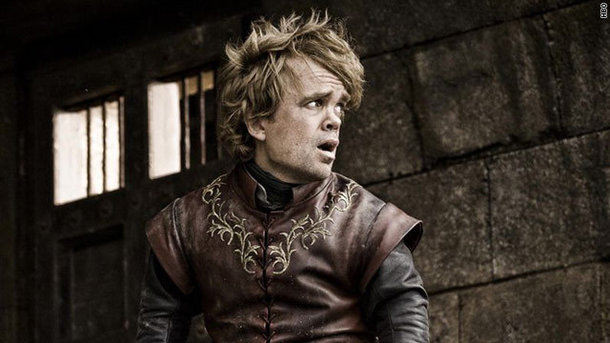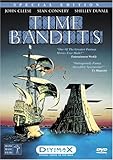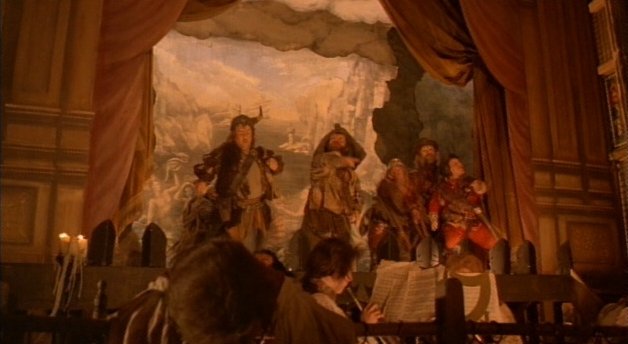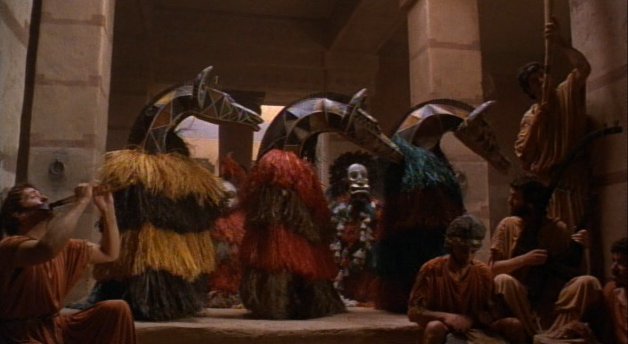from The Guardian (UK):
[url]http://www.guardian.co.uk/film/2012/apr/06/mark-povinelli-mirror-mirror-dwarfism?newsfeed=true[/url]
Mark Povinelli: Mirror Mirror reflects frustrating times for dwarf actors
He may be the star of the new Snow White adaptation, but Povinelli’s dwarfism means he’s fighting for varied roles
Stephen Kelly
guardian.co.uk, Friday 6 April 2012 11.06 EDT
In his hotel room in New Orleans, Mark Povinelli is reflecting upon the sort of scripts he receives. “They’re usually obnoxious. I flick through to what page I’m going to be on and … ‘Oh look! Biting someone on the ankle! Or punching someone in the balls!’ … The trick is to be one step ahead of them. You can’t just say, ‘I don’t like this’, you have to come up with an idea that is better. And that’s the real challenge – an extra added task that a lot of average actors don’t have to deal with. Not only do you have to be a good performer, but you have to come up with better material than you’re given a lot of times, to allow yourself to sleep at night.”
Povinelli has appeared in a string of TV shows and films, with his latest project being a main role in Snow White film adaptation, Mirror Mirror. He also happens to have dwarfism, a condition that means he stands 3ft 9in tall. It makes him a member of a specialist industry that is currently in a state of flux. While recognition for it increases, so do threats. It’s a livelihood which, in terms of screen work, is sporadic at best, and not always appealing.
The roles open to dwarf actors are, historically, of limited scope. Character-led parts have always been thin on the ground; what opportunities there are, tend largely to be confined to the fantastical — The Wizard of Oz, Star Wars, Willy Wonka and the Chocolate Factory.
There are exceptions, of course: Michael Dunn was Oscar-nominated as best supporting actor for the 1965 romance Ship of Fools, David Rappaport became a credible star on the back of Terry Gilliam’s Time Bandits in 1981 (“not even for a lot of money would I be a puppet or a robot,” he once said) and, more recently, Peter Dinklage won an Emmy for his portrayal of Tyrion in HBO’s Game of Thrones – a role soaked with humanity and depth. Even so, a limited range of roles is a frustration for any actor who wants to be taken seriously.
Yet dwarf actors also face a fight for their traditional roles on the most apt of battlefields: Snow White. Two separate adaptations are released this year: one of them (Mirror Mirror, in which Povinelli plays a character called Half Pint) uses a full cast of dwarf actors; while the other, Snow White and the Huntsman, replaces them with well-known names such as Ian McShane and Nick Frost shrunk using CGI.
Such a practice is hardly new, of course: Lord of the Rings famously used camera angles to resize its actors, as will dwarf-heavy prequel, The Hobbit, released later this year. Just as dwarf actors’ work is being threatened in pantomimes by child actors, such FX trickery is eradicating roles traditionally held by dwarves. It’s a novelty that isn’t going down well.
“What it ultimately comes down to is that this is a business,” Povinelli says. “And the driving force for making the [Snow White and the Huntsman] decision was to get names that would hopefully sell the film. I don’t agree with it, of course.”
“I mean, I’ve got no problem with Ian McShane playing a dwarf, if I’m allowed to play a lawyer or a doctor or all of the things we seem to be denied so often. I don’t want the market on the fantastical characters – that doesn’t interest me. I want the whole range. I don’t begrudge McShane taking on that role but the coin should be flipped as well and we should be allowed to play actual humans. Because … you know, it’s pretty obvious but that’s what we are. I’m not a leprechaun. I’m not an elf. I don’t live in a forest. I’m a dad, I’m a husband, I’m a sports fan, I’m a theatregoer … I’m everything everyone else is. And those are the things you want to portray.”
Danny Woodburn, an established TV and film actor best known for his roles in Seinfeld and Watchmen, also plays one of the seven dwarves in Mirror Mirror. He agrees with Povinelli. “To me, that’s still telling of the nonacceptance of dwarfism … You would never see this with any other minority — it isn’t acceptable. In today’s industry, you would never see someone seriously playing an African American who wasn’t an African American. Yet it is acceptable in the realm of actors portraying people with dwarfism, or disabilities in general.”
Woodburn is a member of the Screen Actors Guild for Performers with Disabilities Committee, and is outspoken when it comes to dwarfism issues – especially the sneery sense of schadenfreude and dehumanisation that they’re occasionally subjected to. “I have put it in my contract before that no one will pick me up in a scene, and I will not be required to bite anybody” he says. “Do you not see how humiliating it is to liken me to some kind of animal?”
It’s for this reason that Woodburn is surprised by the fuss surrounding Warwick Davis’s Life’s Too Short – the TV show that has triggered much debate about dwarf actors. “It’s amazing that people are so shocked and in uproar about this, when I’ve seen the exact same sort of treatment in a realistic way. No one goes crazy about that.”
The reactions to Life’s Too Short just go to show the variety of opinions on how dwarves should be seen on screen. Yet between the protection of traditional roles and the hunger for meatier ones, the consensus seems to be that what the dwarf acting industry needs is the chance for louder voices – something that was basically nonexistent in the days where Kenny Baker walked into the role of R2-D2.
Willow Management, a dwarf acting agency based in the UK, looks after almost 250 clients across the world. Their role, according to Peter Burroughs, who runs the agency with Warwick Davis, is to look after the interests of dwarf actors, put them forward for auditions and to “step in if our clients feel like they’re being exploited”.
Despite a relatively large number of actors on their books (although minuscule in the context of the acting industry as a whole), Burroughs says very few actually approach it as a serious, full-time career. He thinks it might be an issue of confidence, but is certain that’s changing.
“We put them forward for auditions and try to help them out so they’ll pass them,” he says. “We do acting lessons to give them confidence, and to be able to assert themselves as actors. We also try to make the industry aware that these people are capable of doing a good acting job. After all: as long as there’s good actors, the industry will survive.”
But what needs to change so that dwarf actors have the chance to showcase their talent? Woodburn singles out one of the biggest problems: a lack of understanding from writers. “A path writers go down is the pathos of smallness, where the person with dwarfism is pathetic because of their size … A writer will say, ‘Oh, you’re a sad little man’; but the reality is, ‘No, I’m not a sad little man, I’m just kinda pissed off because society won’t accept me as a man.’ If I’m going to be seen as a dwarf, then I want to be seen as the dwarf I know I am – not the one the writer has made up in their mind having no experience of people with dwarfism.”
Povinelli agrees; he is also optimistic for a future that is led by actors such as Dinklage. “The opportunity still needs to meet the talent level, but the glass ceiling is starting to shatter.”
“Hopefully we’re evolving as a society so that we’re coming to the realisation that people with a difference can actually offer something with a unique perspective rather than being something of wonder or something to be laughed at. And I think that’s coinciding with the fact that there’s a real pool of super-talented actors who are finally getting a chance to show what they can do – to finally be seen as actors first, and dwarves second.”
Mirror Mirror is out now. Snow White and the Huntsman is released 1 June.
© 2012 Guardian News and Media Limited or its affiliated companies. All rights reserved.






